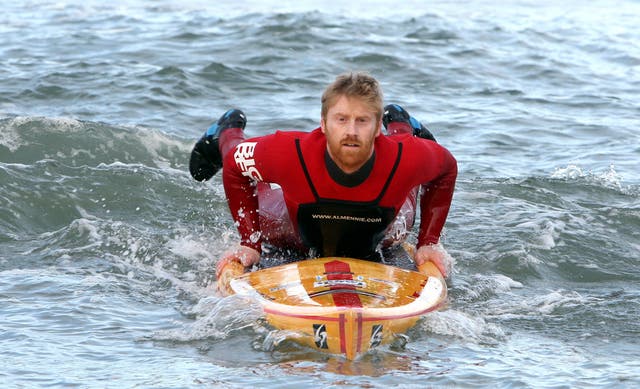
Stormont has been urged to update regulations to protect those swimming in Northern Ireland’s lakes and at the coast.
The Department of Agriculture, Environment and Rural Affairs (Daera) has been handed 11 recommendations to update the Bathing Water NI Regulations.
It comes as a report published by the Office for Environmental Protection (OEP) concluded the public could be better protected.
It has found that the regulatory regime is outdated as the regulatory requirements have not kept pace with the changing ways in which society uses rivers, lakes and coastal waters for recreation.

It says that the regulations focus on swimming, and any future review should consider expanding that to include activities such as surfing, paddle boarding and windsurfing.
It also points out that the regulations focus on a fixed bathing season, which does not reflect the year-round nature of the activities.
Any review has been recommended to consider the approach to sampling water quality, with a view to increasing the number of sample points on long stretches of water and being more open about monitoring decisions.
A separate and recent OEP report on a related topic, the implementation of the Water Framework Directive NI Regulations found that progress is not on track to meet the environmental objectives set for most identified waters.
This is because of a range of factors including a lack of clear objectives, or specific and certain measures to achieve those objectives.
Dame Glenys Stacey, chairwoman of the OEP, said the Bathing Water NI Regulations have fallen out of step with the needs of today.
“With more people participating in outdoor water pursuits, it is ever more necessary to make sure that enjoying Northern Ireland’s waters is not just fun, but good for us, rather than a risk to our health and wellbeing,” she said.

“We have taken an in-depth look at the Bathing Water NI Regulations and found that they have fallen out of step with the needs of today.
“They originate from developments in the 1970s and 1980s and have not kept pace with the evolving ways in which waters are now used for recreational purposes, or with public expectations.
“It is fair to say that the regulations have led to significant improvements in bathing water quality since they were introduced around three decades ago, and we can see that important elements of the regulations – monitoring, classification and reporting requirements – are being implemented.
“Nevertheless, the lack of overall improvement in water quality observed in recent years, combined with a number of bathing water sites failing to achieve sufficient or better standards, is a cause for concern and has been widely reported.”
She added: “For the public to be better protected and enjoy the significant health and wellbeing advantages of being active, closer to nature and more connected to their communities, the regulatory regime needs to be more expansive and more effective.”
Responding, Daera minister Andrew Muir welcomed findings that Bathing Water Regulations are being implemented fully and improvements have been made.
He said some of the recommendations made are already under consideration such as the extension of the current bathing season, and the department is currently collecting data to inform future policy direction.
“I welcome the discussion around these matters and the renewed focus of so many on improving water quality,” he said.
“I agree there is more we can do together to improve bathing water quality, OEP report is a useful and constructive contribution.
“We can only protect bathing waters and public health by making sure that appropriate measures are implemented in catchments.
“I recognise that a source to sea approach is critical and will work across all sectors to secure improvements in water quality.”


Why are you making commenting on The Herald only available to subscribers?
It should have been a safe space for informed debate, somewhere for readers to discuss issues around the biggest stories of the day, but all too often the below the line comments on most websites have become bogged down by off-topic discussions and abuse.
heraldscotland.com is tackling this problem by allowing only subscribers to comment.
We are doing this to improve the experience for our loyal readers and we believe it will reduce the ability of trolls and troublemakers, who occasionally find their way onto our site, to abuse our journalists and readers. We also hope it will help the comments section fulfil its promise as a part of Scotland's conversation with itself.
We are lucky at The Herald. We are read by an informed, educated readership who can add their knowledge and insights to our stories.
That is invaluable.
We are making the subscriber-only change to support our valued readers, who tell us they don't want the site cluttered up with irrelevant comments, untruths and abuse.
In the past, the journalist’s job was to collect and distribute information to the audience. Technology means that readers can shape a discussion. We look forward to hearing from you on heraldscotland.com
Comments & Moderation
Readers’ comments: You are personally liable for the content of any comments you upload to this website, so please act responsibly. We do not pre-moderate or monitor readers’ comments appearing on our websites, but we do post-moderate in response to complaints we receive or otherwise when a potential problem comes to our attention. You can make a complaint by using the ‘report this post’ link . We may then apply our discretion under the user terms to amend or delete comments.
Post moderation is undertaken full-time 9am-6pm on weekdays, and on a part-time basis outwith those hours.
Read the rules here